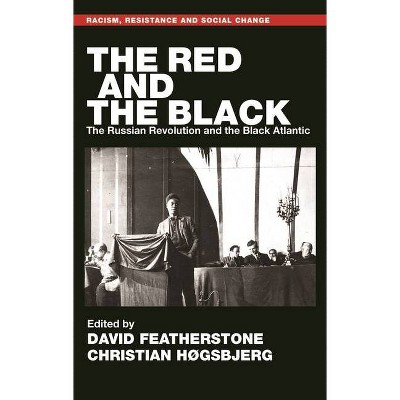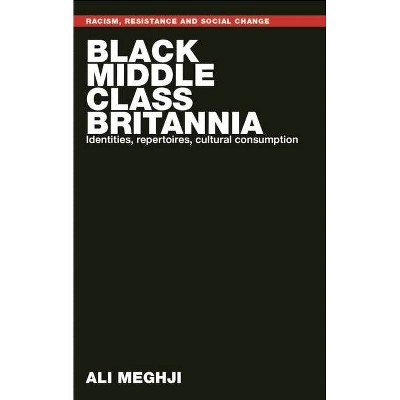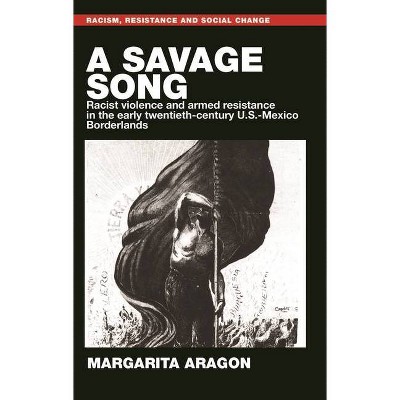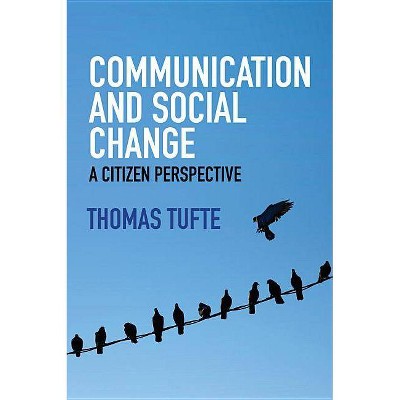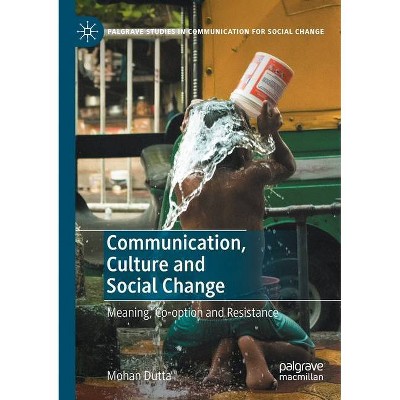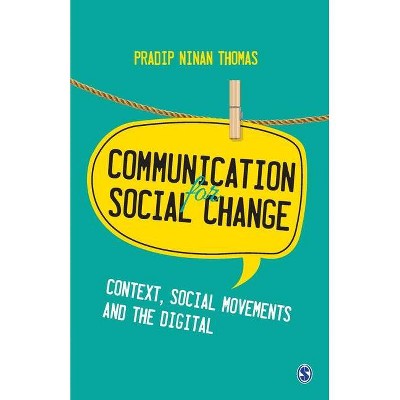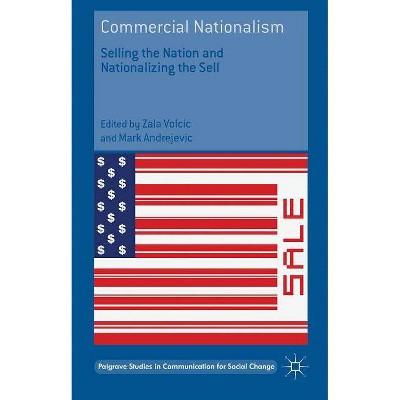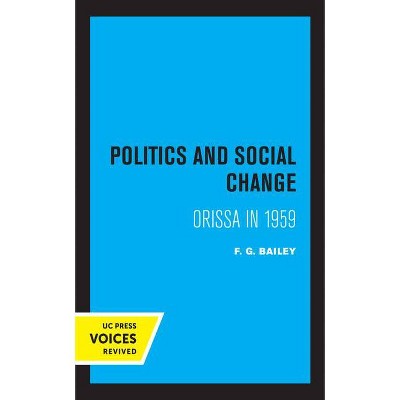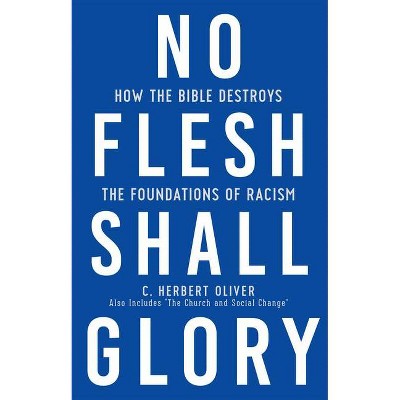Global White Nationalism - (Racism, Resistance and Social Change) (Paperback)
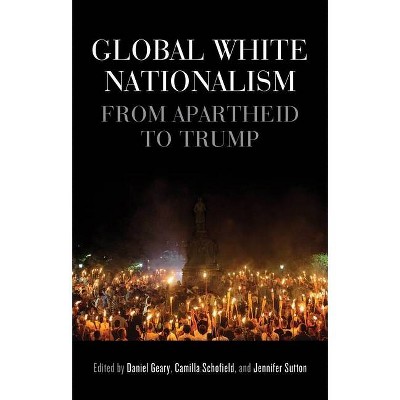
Similar Products
Products of same category from the store
AllProduct info
<p/><br></br><p><b> About the Book </b></p></br></br>This book offers the first transnational history of white nationalism in Britain, the US and the formerly British colonies of Rhodesia, South Africa and Australia from the post-World War II period to the present.<p/><br></br><p><b> Book Synopsis </b></p></br></br>This book offers the first transnational history of white nationalism in Britain, the US and the formerly British colonies of Rhodesia, South Africa and Australia from the post-World War II period to the present. It situates contemporary white nationalism in the 'Anglosphere' within the context of major global events since 1945. White nationalism, it argues, became more global in reaction to the forces of decolonisation, civil rights, mass migration and the rise of international institutions. In this period, assumptions of white supremacy that had been widely held by whites throughout the world were challenged and reformulated, as western elites professed a commitment to colour-blind ideals. The decline in legitimacy of overtly racist political expression produced international alliances among white supremacists and new claims of populist legitimation.<p/><br></br><p><b> From the Back Cover </b></p></br></br>The morning after the 2016 Brexit referendum, Donald Trump tweeted that Britons 'took their country back, just like we will take America back.' During his presidential campaign, Trump forged a close alliance with Nigel Farage, leader of the UK Independence Party and the foremost advocate of British withdrawal from the European Union. Both Trump and Farage promised a return to lost national greatness through an end to migration. Far from a disappearing ideology, white supremacy has proven resilient and adaptive. <i>Global White Nationalism</i> reveals that the recent rise of ethnonationalism and white supremacist violence in the English-speaking world need to be understood as related developments in a longer history of exchange among white nationalists in Britain, the United States and other formerly British settler colonies. Exploring histories of Australia, Britain, Southern Africa and the US, this book shows how a modern form of white nationalism emerged across the English-speaking world in response to calls for racial equality and in reaction to the forces of decolonization, civil rights, mass migration and the rise of international institutions such as the United Nations. And it is still at work to this day. Uncovering a post-1945 transnational history of white nationalism for the first time, <i>Global White Nationalism </i>offers vital historical perspective on the contemporary politics of Anglophone white supremacy.<p/><br></br><p><b> Review Quotes </b></p></br></br><br>'It is impossible to understand the political dynamics of Europe, the United States and many other parts of the world without coming to terms with the resurgence of white ethnic nationalism and white supremacism. What makes that understanding so difficult is that these movements are at once intensely local and - paradoxically - highly globalised. This superb collection of essays illuminates the relationships of white nationalist reactions to the large-scale historical forces of colonialism, globalisation and cultural and economic change. At once accessible and authoritative, it fuses erudition with urgency, the past with the present.' Fintan O'Toole, <i>Irish Times</i> columnist and writer 'This timely and intelligent collection sheds light on a disturbing phenomenon that has taken root not least in Europe and North America: White Nationalism.' Gerald Horne, author of <i>White Supremacy Confronted: U.S. Imperialism and Anticommunism vs the Liberation of Southern Africa, from Rhodes to Mandela</i> 'Long dismissed as a fissiparous fringe, the white right comes under serious scrutiny in this unsettling trans-historical collection. Fuelled by feelings of betrayal and loss, the precursors to modern white racial populism are found here amongst baleful networks of Powellites, Paisleyites, neo-Confederates, and unreconstructed imperialists.' Saul Dubow, author of <i>Apartheid, 1948-1994</i> 'A timely and compelling study of the historical evolution of white nationalism across spatial boundaries, this pioneering work addresses a significant lacunae in our historical knowledge and provides invaluable insight into contemporary political formations in the age of Brexit and Trump.' Kerry Pimblott, University of Manchester '<i>Global White Nationalism</i> makes a number of notable and timely interventions.' <i>Ethnic and Racial Studies</i> '[...] Every contributor is to be commended. As befits a book of stimulating scholarship, it concludes with an animating postscript from Omar Khan, former director of the Runnymede Trust, a race equality think tank founded in 1968, partially in response to Enoch Powell's 'Rivers of Blood' speech. Khan reminds us that effectively tackling racism requires 'building arguments, coalitions, and policies to challenge and ultimately dismantle all forms of injustice' (307). This book is a welcome addition to that process. It lays a solid foundation on which future scholars can build. But it also does far more. Each chapter is as accessible as it is authoritative, making it suitable for a wide readership and for starting a necessary conversation critical to the future of the twenty-first century.' <i>European History Quarterly</i> 'A valuable addition to the literature on the history of the transnational extreme right as well as a timely and stimulating intervention into our current debates about racial justice and the ongoing threat of white nationalism.' <i>Patterns of prejudice</i>, Craig Fowlie 'At a moment in history when a majority of Republicans believe that "the traditional American way of life is disappearing so fast that we may have to use force to save it," according to a 2020 study by the American Enterprise Institute, a book of essays on global white nationalism is timely. Mostly written by British scholars, this collection examines the commonalities among far-right movements across the English-speaking world and cautions readers about ignoring their potential to infiltrate mainstream politics. Contributors describe how right-wing activists globally seek to preserve or restore white power in the face of movements for equality, which grew out of post-WW II decolonization movements and civil rights advances. White supremacists in the US and former British colonies have consistently opposed immigration of what they deem to be people of inferior stock. Their spokesmen have shared ideas through personal connections, and more recently the internet. Brexit, Enoch Powell and his "Rivers of Blood Speech," and Donald Trump are frequently invoked in this collection as key elements of global white nationalism. Although not all of the essays are equally reader friendly, collectively they remind readers that awareness of white nationalism's reach is necessary to combat it. <i>--M. J. Birkner, Gettysburg College</i> Summing Up: Recommended. Graduate students, faculty, and professionals. Reprinted with permission from <i>Choice Reviews</i>. All rights reserved. Copyright by the American Library Association.<br><p/><br></br><p><b> About the Author </b></p></br></br>Daniel Geary is Mark Pigott Associate Professor in American History at Trinity College Dublin Camilla Schofield works in the School of History at the University of East Anglia Jennifer Sutton is an Independent Scholar
Price History
Cheapest price in the interval: 29.95 on November 8, 2021
Most expensive price in the interval: 29.95 on December 20, 2021
Price Archive shows prices from various stores, lets you see history and find the cheapest. There is no actual sale on the website. For all support, inquiry and suggestion messagescommunication@pricearchive.us
